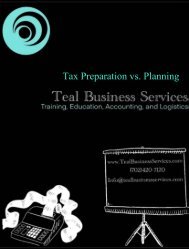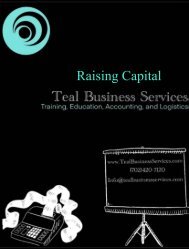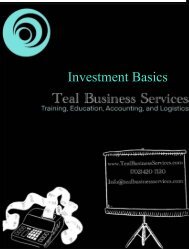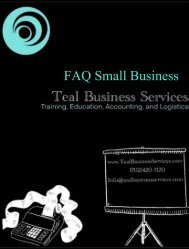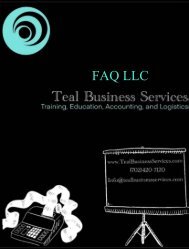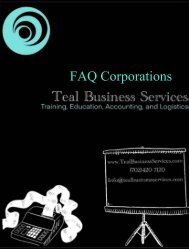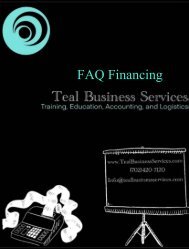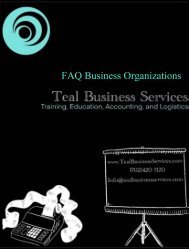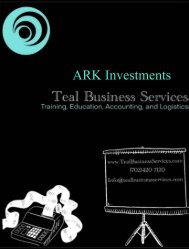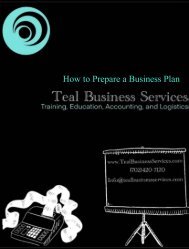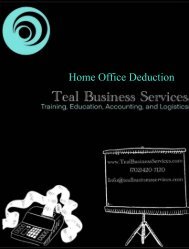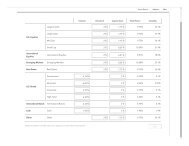Home based business
Create successful ePaper yourself
Turn your PDF publications into a flip-book with our unique Google optimized e-Paper software.
• Separate <strong>business</strong> bank account<br />
If your <strong>business</strong> has employees, you are responsible for withholding income, social<br />
security, and Medicare taxes, as well as complying with minimum wage and employee<br />
health and safety laws.<br />
Planning Techniques<br />
Money fuels all <strong>business</strong>es. With a little planning, you'll find that you can avoid most<br />
financial difficulties. When drawing up a financial plan, don't worry about using<br />
estimates. The process of thinking through these questions helps develop your <strong>business</strong><br />
skills and leads to solid financial planning.<br />
Related Guide: For guidance on setting up a <strong>business</strong> plan, please see the Financial<br />
Guide BUSINESS PLANS: How To Prepare An Effective One.<br />
Estimating Start-Up Costs<br />
To estimate your start-up costs, include all initial expenses such as fees, licenses,<br />
permits, telephone deposit, tools, office equipment and promotional expenses.<br />
Business experts say you should not expect a profit for the first eight to 10 months, so<br />
be sure to give yourself enough of a cushion if you need it.<br />
Projecting Operating Expenses<br />
Include salaries, utilities, office supplies, loan payments, taxes, legal services and<br />
insurance premiums, and don't forget to include your normal living expenses. Your<br />
<strong>business</strong> must not only meet its own needs but make sure it meets yours as well.<br />
Projecting Income<br />
It is essential that you know how to estimate your sales on a daily and monthly basis.<br />
From the sales estimates, you can develop projected income statements, break-even<br />
points, and cash-flow statements. Use your marketing research to estimate initial sales<br />
volume.<br />
Determining Cash Flow<br />
Working capital--not profits--pays your bills. Even though your assets may look great on<br />
the balance sheet, if your cash is tied up in receivables or equipment, your <strong>business</strong> is<br />
technically insolvent. In other words, you're broke.





